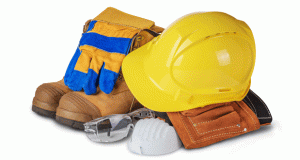The built environment has improved its record in terms of physical health and safety. Sara Bean finds out how charity Mates in Mind and VINCI FM are working to promote mental wellbeing
Russell Stilwell is a successful businessman and founder of RS Electrical Contractors, a mechanical, engineering and plumbing specialist serving the construction and FM industry. But back in 2010 he found himself coping with extreme anxiety and depression. He tried to ignore it and continued on until, as he describes it: “I couldn’t fight it anymore and I was starting to become someone that my family and I didn’t recognise.” He adds that if he hadn’t received professional help, he probably wouldn’t be here today.
Sadly, his experiences are not unusual. Research suggests that suicide kills far more workers in construction than falls. According to HSE statistics, one in six workers in the UK experiences depression, anxiety or stress, and 91 million work days are lost as a result of mental health-related problems.
 While the male-dominated construction and FM sectors have improved their record in terms of physical health and safety, safeguards for employees’ mental wellbeing is not as well resourced. According to Stilwell, FM and construction go to great lengths to mitigate risks on site – but do little to notice, reduce or mitigate the risks associated with mental ill-health.
While the male-dominated construction and FM sectors have improved their record in terms of physical health and safety, safeguards for employees’ mental wellbeing is not as well resourced. According to Stilwell, FM and construction go to great lengths to mitigate risks on site – but do little to notice, reduce or mitigate the risks associated with mental ill-health.
After overcoming his own anxiety and depression, Stilwell went on to champion mental wellbeing within his firm and the wider FM and construction sector, sharing his story at the official launch of the charity Mates in Mind in September 2017. Following a successful pilot programme between February and June 2017, Mates in Mind was rolled out across the sector by the Health in Construction Leadership Group (HCLG), with the support of the British Safety Council. Its aim is to raise awareness, address the stigma of poor mental health and improve mental wellbeing in the UK construction industry.
Steve Hails is Director of Health, Safety and Wellbeing at Tideway, the company delivering the Thames Tideway Tunnel, and Chair of Mates in Mind: “We set ourselves a target of reaching 100,000 people in year one and 75 per cent of the industry by 2025. The charity currently has 188 supporters whose direct employment accounts for over 185,000 employees, so we’re on track. We need to ensure, though, that it’s not just about training and education, it’s the whole approach that Mates in Mind brings, providing support across organisations.”
He continues: “Mental health awareness isn’t a light-switch moment as something you can solve overnight. You need to have commitment from the most senior people within the organisation that this is something they want to address. Mates in Mind can then offer a range of support and access to a variety of resources that allow that foundation to be put in place within the organisation. It’s then about how you introduce and upskill and address the stigma.”
The process, he explains, works in three stages. First is a two-day mental health first aid course which gives people a greater understanding of the causes, and avenues that might be explored to provide co-workers with support and to act as a signpost for individuals that may come to them with an issue.
Second is a half-day awareness programme called Managing the Conversation, delivered by the British Safety Council. This is directed at supervisors and leaders within a business to give an understanding of how certain elements can impact an individual and put them in a dark place.
The final element is a 45-minute starter conversation for every employee within the workplace. This involves getting a group of people within an environment to start to address the stigma of mental ill-health. It aims to provide an open and confidential space where it’s possible to say to individuals, ‘it’s OK to feel like this. It’s normal.’
Says Hails: “The reason I describe the options that way round is that if you start the conversation and open the door without somewhere to go, you could make the situation worse, which is why there should be support networks in place within the organisation. Training plays a part, but most of all it’s about addressing the stigma and saying, ‘you know what? It’s OK to feel like that, because we all do at some point.’ People will then stop seeing mental ill-health as a weakness.”
MENTAL HEALTH IN FM
Within the FM sector, VINCI Facilities is attempting to lead from the front. As part of its Time to Change pledge (see next page), VINCI is focusing on mental health and the wellbeing of its people and those in its supply chain by setting up mental health first aiders, wellbeing champions and emphasising the importance of fairness, inclusivity and respect.
According to Paul Cottam, VINCI Facilities Director and a Non-Executive Director of the British Safety Council, VINCI recognises that investment in mental health and wellbeing is something that creates a legacy; it’s not just about being a safe pair of hands, but about taking a wider, longer-term view. A happier, healthier and more productive workforce is more willing to engage with the communities it serves because of its positive outlook.
A key strategy is training up mental health first aiders. Says Cottam: “When we started discussing this a couple of years ago, there were people who were interested and put their hands up, so we discussed it at leadership meetings. Before we knew it we had eight to 10 people who asked to go on the mental health first aid course, who then came back and organised breakout sessions.”
 According to Hails, the principle behind mental health first aid is very simple: “If you cut your finger you’ll go and see a first aider. If you’re feeling down and depressed, you can see a mental health first aider.” But he warns that it’s important to understand the limitations of mental health first aid.
According to Hails, the principle behind mental health first aid is very simple: “If you cut your finger you’ll go and see a first aider. If you’re feeling down and depressed, you can see a mental health first aider.” But he warns that it’s important to understand the limitations of mental health first aid.
As with physical first aid, if it’s beyond a volunteer’s limitations they need to know where to go, and this is part of their training. Mental health first aiders are there as a resource. They’re not trained psychiatrists; the idea is that they listen, offer a sympathetic ear, look for signs and help to point people on to organisations such as Mind, the Samaritans or Mental Health First Aid England for further support.
In larger organisations there may be an employee assistance programme (EAP) to offer support, but one of Mates in Mind’s primary concerns is to address the 95 per cent of people working in construction who are employed by an SME. These are organisations without resources and funds – sometimes without even a dedicated FM or HR department.
“The beauty of being a supporter of Mates in Mind is having access to a range of helpful organisations,” says Hails. “There is support available through a national counselling service, and that benefits the SME population. We’ve also made a commitment through the charity that we will invest back into the SME community, where fulfilling certain criteria will give you access.”




